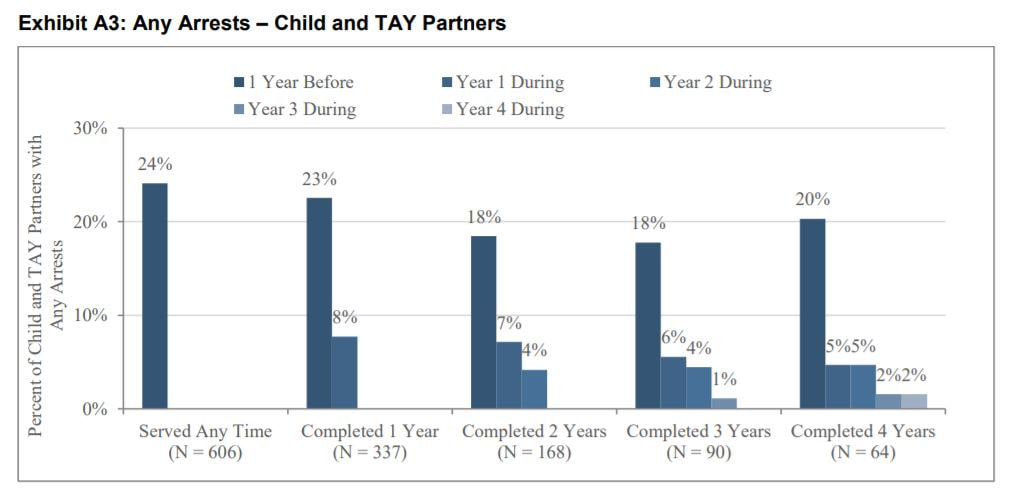Performance Outcome Data - San Mateo County
Categories on this page include:
|
Children & Youth
Criminal Justice Employment |
Hospitalization
Housing / Homelessness Substance Use Disorder (SUD) |
Children & YouthMHSA Update 2023-24 (FY21-22), Children N =219; TAY N=264, Page 528
Children (16 and younger):
Criminal JusticeMHSA Update 2023-24 (FY21-22)
Adult Full Service Partnership, n=114, Page 526
|
|


